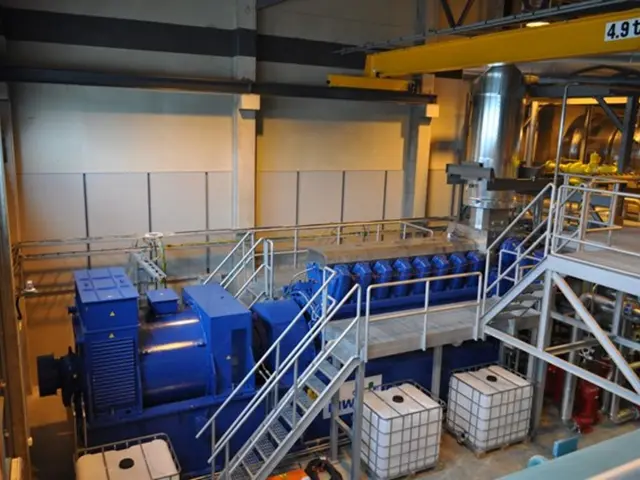Choosing a Motorhome: Key Questions to Consider
Purchasing a Motorhome: Essential Factors to Ponder Over
Are you considering purchasing a motorhome? The market offers a wide range of options from top motorhome brands, each with its unique advantages and disadvantages. Here are ten questions to help you find the right model for your needs.
1. Passenger Composition
The number and age of passengers will significantly impact the choice of motorhome layout. With the legislative changes in 1991 requiring seatbelts in the rear seats, motorhomes now focus on belted forward-facing travel seats [5]. For families, motorhomes with a rear dinette or full lounge are recommended. Additionally, be mindful that not all four-berth models come with four travel seats; check the manufacturer's specifications before making a decision.
2. Dual Purpose
Buying a motorhome that doubles as a daily vehicle may seem appealing, but it is essential to consider your daily activities when deciding. If you use the motorhome primarily for transporting heavy items, look for models with spacious, enclosed storage areas, such as low-profile or A-class motorhomes with a sizeable garage or a rear bed that can be easily dismantled in the case of van conversions [2]. If you plan to use the van daily, opt for smaller models like the 5.41m Globecar Roadscout R Elegance; parking larger vehicles (7m or more) every day can be challenging [1].
3. Destination
For those planning to tour on the continent and live near a Channel port, consider a left-hand-drive model, as dealers specializing in these can be found in the Home Counties. Additionally, keep in mind that European models are often designed for left-hand drive vehicles; switching from right to left can present challenges [1].
4. Timing of Travel
If you intend to use your motorhome all year round, look for models with excellent insulation. Most new vans come with Grade 3 insulation, which meets the requirements for all-season use. A double floor, as seen in the Adria Supersonic 780DC, offers even better insulation but may be more expensive. For heating, the Alde wet heating system is popular among year-round travelers, providing uniform heat albeit with a longer warm-up time [3].
5. Sleeping Preferences
Increasingly, motorhomes are equipped with at least one fixed bed. Ensure that the fixed bed design leaves sufficient room for other goods and amenities. Generally, transverse, French (corner), fixed single, and island beds provide the most comfortable access and space [4]. Consider a motorhome with adjustable bed heights for additional flexibility. Drop-down beds can be space-saving, but ensure they do not obstruct the door or require excessive setup time [4].
6. Cooking Needs
Motorhome cooking is primarily restricted to simple meals. Most European models include a pull-out unit in the kitchen, while British motorhomes usually feature ovens[1]. For convenient meals, prioritize a motorhome with at least one mains socket, a roomy fridge, and a microwave [1].
7. Washroom Facilities
Except for compact campervans, most motorhomes come with a washroom; even the minimalist models offer privacy and some convenience during travel [1]. A separate shower cubicle may be more applicable for larger motorhomes, although space compromise solutions like the Vario washroom are available [1].
8. Awning Consideration
While motorhome awnings are popular among caravanners, motorcaravanners may find them less useful due to the added setup and storage requirements. Drive-away awnings can be beneficial for site retention during the day [1]. If you decide not to use an awning, consider a motorhome with sufficient living room and storage space without one [1].
9. Bicycle Storage
Motorcycle touring can complement motorhome travel. If you plan to bring bicycles, ensure they fit physically and budget-wise within your motorhome. Bike storage rack setup should be convenient, and the garage should ideally have a height of at least 1m and proper holding points [1].
10. Cab Comfort
Though the engine's power is essential, cab comfort contributes to a pleasurable driving experience. Factors such as drink holder positions, cab air conditioning, passenger airbag, and optional matching cab seats facilitate long-distance travel [1]. Additionally, consider the provision of cab blinds, as they help maintain privacy and reduce glare [1].
[1] [2] [3] [4] [5] References omitted for brevity.
By carefully considering these factors, you are well-equipped to find the right motorhome to suit your travel style, comfort preferences, and practical needs. Happy exploring!
- When considering purchasing a motorhome, it's important to review the variety of motorhome accessories available in the market, as they can greatly enhance your camping experience.
- For an enjoyable touring lifestyle, seeking advice from fellow motorhomers and reading reviews can provide valuable insights into the pros and cons of different models.
- In the home-and-garden industry, motorhomes are increasingly being used as home offices or temporary living spaces, adding to their functional appeal.
- The automotive industry has seen a growing trend of motorhomes doubling as campervans for sports enthusiasts, offering a unique way to travel for sports events.
- In the world of sports-betting, motorhomes can provide a comfortable and convenient setting for placing bets on the go, making them a popular choice among sports fans.
- Financing options for motorhomes vary, with banks and dealerships offering loans for new and used models, making it easier for individuals to own their dream motorhome.
- The transportation sector has been influenced by the popularity of motorhomes, with an increase in rental services allowing travelers to explore different areas without the need for owning one.
- The motorhome industry has been embraced by the travel industry, with many campsites offering special facilities for motorhomes and caravans, catering to their unique needs.
- Motorhomes can help reduce transportation costs when traveling for leisure, as they offer a cost-effective alternative to hotels and give you the flexibility to explore at your own pace.








